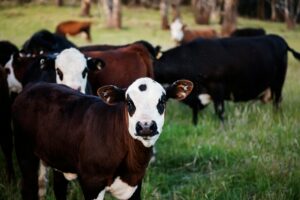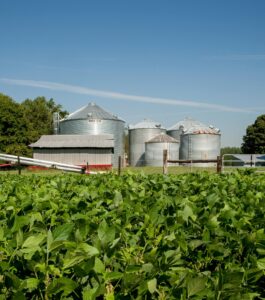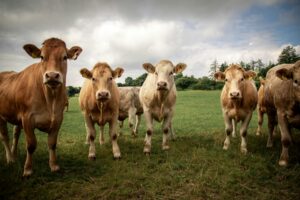Introduction
The “Adding value” section of the Agribook website (of which this page is a part) deals with, well, adding value to the primary agricultural product. This finished product is what the consumer wants and pays money for. Because of this, farmers are often advised to be more involved in the activities that happen beyond the farm gate.
The agro-processing industry consists of various sub-sectors, which include:
- meat processing
- dairy products
- fruit and vegetables processing
- grain mill products
- sugar mills and refineries
- wine fruit juices
- beer
- cocoa, chocolate and sugar confectionery
- bakery products
- prepared animal feeds
Other food products/ingredients include starch and starch products, baby food, chips, baking powder, yeast, condiments, flavours and fragrances, mustard, vinegar, edible salt refining, tea and coffee processing and packing. Non-food products include tobacco, essential oils, biofuels, biopolymers, bioplastics, paper and paper products, wood and wood products, textiles, wearing apparel, rubber products, footwear and leather and leather products.
Government views agro-processing as a sector to be strengthened as it delivers on vital areas like job creation, exports and “raising overall economic productivity” (see “National strategy and government contact” heading).
International business environment
The food and beverage market in Africa is expected to experience significant growth, exceeding $1 trillion by 2030. This surge is fuelled by factors such as a burgeoning population, thriving economies, and the emergence of a wealthier middle class (Sabinet, 2024).
- Find Food & Agriculture Organisation (FAO) documents like State of Food and Agriculture 2025: Addressing land degradation across landholding scales and Agroprocessing Industry and Economic Development, at www.fao.org.
- www.ifama.org – International Food and Agribusiness Management Association
- International Union of Food Science and Technology (IUFoST) – https://iufost.org/
- International Society of Food Engineering (ISFE) – www.iufost.org/isfe
- The United States Department of Agriculture’s Foreign Agricultural Service (FAS) puts out a “Food Processing Ingredients” report on what is happening in other countries. Find these at www.fas.usda.gov.
- Read Empowering Africa’s Food Systems for the Future: Africa Agriculture Status Report 2025. Find it at https://agra.org/publications/africa-agriculture-status-report-aasr.
South Africa: imports and exports
South Africa is largely self-sufficient when it comes to agricultural and related processed products. The biggest import-dependent industries by value are processed meat (mainly poultry), edible oils (palm) and grain milling (rice)
Local business environment
Food and beverages is one of the bigger divisions in South Africa manufacturing, accounting for 22.07% of production. Also of interest to us is the textiles, clothing, leather and footwear category (3,89%); wood and wood products, paper, publishing and printing (10,29%); and furniture and other manufacturing (4.09%).
In the food and beverages category we note the contributions as:
- Meat, fish, fruit and oils – 15.9%
- Dairy products – 6,7%
- Grain mill products – 9.1%
- Other food products – 34.45
- Beverages – 33.7%.
Source: Statistics SA Manufacturing: Production and sales, June 2025
Further reference:
- The “Websites and publications” heading has several sources which will be of interest to the reader.
For the newcomer
Introduction to the General Principles of Agro-Processing:
Faced with the current economic realities, farmers worldwide are searching for new options of surviving, as well as expanding their business. One of the many opportunities to grow markets, turnover and profits, is by adding value to farm produce through further processing. Most value-added food products available to consumers have been processed in some way or other, even if the processing is as simple as cleaning produce before it is packed in plastic-or net bags. Two types of processing methods may be performed on raw materials:
- Primary Processing: this type of processing includes the simplest of processes such as washing, peeling, chopping, ageing, the milling of wheat for flour production, and the processing of sugarcane;
- Secondary Processing: this type of processing involves the conversion of primary processed products into more complex food products and includes procedures such as mixing, depositing, layering, extruding, drying, fortifying, fermentation, pasteurisation, clarification, heating etc
The sub-sectors which make up the agro-processing industry include:
- meat processing
- dairy products
- fruit and vegetables processing
- grain mill products
- sugar mills and refineries
- wine
- fruit juices
- beer
- cocoa, chocolate and sugar confectionery
- bakery products
- prepared animal feeds
Other food products/ingredients include starch and starch products, baby food, chips, baking powder, yeast, condiments, flavours and fragrances, mustard, vinegar, edible salt refining, tea and coffee processing and packing. Non-food products include tobacco, essential oils, biofuels, biopolymers, bioplastics, paper and paper products, wood and wood products, textiles, wearing apparel, rubber products, footwear and leather and leather products.
Government views agro-processing as a sector to be strengthened as it delivers on vital areas like job creation, exports and “raising overall economic productivity” (see “National strategy and government contact” heading). Business views agro-processing as “a high skilled, capital intensive and scale of economy business”. It welcomes government attention but lists concerns as being that interventions should not crowd out private sector investment or undermine the competitiveness of current players.
Source: Theresa Siebert in the introduction to the ARC manuals on agro-processing.
Further reference:
- Find a list of the ARC manuals on agro-processing, crucial documents, under the “Websites & publications” heading.
- An interesting example of entrepreneurship on a fruit farm can be found at http://fruitlips.co.za. FruitLips processes fruit not exported, manufacturing jams, marmalades, chutneys etc. This offers jobs to “more than fifteen families”.
National strategy and government contact
Government has firmly identified agro-processing and its upstream sector, agriculture, as a critical driver of inclusive growth in South African economy, with very significant job creation potential. Agro-processing flies high in the Agriculture and Agroprocessing Master Plan (AAMP).
Agro-processing also featured in the National Development Plan (NDP), which postulated a million possible new job opportunities, and in other previous strategies and policy documents like the Industrial Action Policy Programmes (IPAPs) and the Agricultural Policy Action Plan (APAP). Find these documents on www.gov.za.
Department of Trade, Industry and Competition (the dtic) Chief Directorate: Agro processing and Forestry Based Industries www.thedtic.gov.za
- Agro-processing has enjoyed support under initiatives such as the Agro-processing support scheme (APSS), Enterprise Investment Programme (EIP), the Co-operative Incentive Scheme and the Manufacturing Investment Programme and the Enterprise Investment Programme (MCEP). The dtic has funded agro-processing facilities and projects through entities like the Coega Development Corporation (CDC).
Find details of Government incentives at https://industrialfinancing.co.za.
Competition Commission www.compcom.co.za The Competition Amendment Act holds major implications for directors and senior management. The Act introduces provisions to hold personally accountable, and criminally liable, individuals who cause firms to engage in cartel activity.
Department of Agriculture www.nda.gov.za
Details of all directorates can be found on the website. Included amongst the important ones for this page are:
- Agro-processing Support Read about this offering on the website. Key among its interests is supporting SMEs in agro-processing.
- Directorate: Food Safety and Quality Assurance Food Business Operators (i.e. producers, packers, processors, transporters, etc.) of regulated agricultural products of plant origin for export and local market can register their food business online. The electronic facility of registering Food Business Operators online will enable a process of tracing and tracking of the product in the supply chain. Find “Food Business Operator Codes” under the Food Safety and Quality Assurance pages at www.nda.gov.za.
- Directorate: Marketing
- Directorate: Inspection Services
Read about requirements for Food Business Operators (FBOs) on the website. This is a prerequisite for packhouses, processing plants, exporters, grain storage facilities, retailers and municipal markets.
National Agricultural Marketing Council (NAMC) www.namc.co.za
Perishable Products Export Control Board (PPECB) www.ppecb.com
Department of Health www.health.gov.za
- Food premises are regulated by R962 (dated Nov 2012) of the Foodstuffs, Cosmetics and Disinfectants Act, 1972 (Act 54 of 1972) under the mandate of the Department of Health. Regulations relating to the labelling and advertising of foodstuffs, R146 (dated Mar 2010) of the Foodstuffs, Cosmetics and Disinfectants Act, 1972 are also under the mandate of the Department of Health and enforced by local and municipal authorities.
“Support for agroprocessing in rural communities and farmer development” is one of the chapters in the Department of Science, Technology and Innovation (DSTI)‘s Agricultural Bio-economy Innovation Partnership Programme. Read the document at www.dsti.gov.za/images/2022/09/ABIPP_Booklet_compressed.pdf
Role players
View the Premium Listings below (scroll down or click on “Premium Listings” on the Table of Contents to the right).
Further reference:
Associations involved
- Find other associations, NGOs and Non-profit organisations on the relevant pages of Agribook.
Training and research
- Systems improvements and value-add was identified as a priority area in the National Agricultural Research and Development Strategy document. That was years ago, and the priority remains the same.
Companies involved
- Find the details of the various associations and companies involved on the relevant agro-processing pages on Agribook. In addition, also see “Grain storage and handling” and “Consultants”. Be aware too that role players like the ARC, CSIR and Eskom also help in value added activities.
- Add For cold storage, see the “Packaging and handling systems” page.
- Refer to the SAAFoST website where details of a number of consultants are given. Visit www.saafost.org.za.
- Also find role players at www.supermarket.co.za and www.thebuyersguide.co.za.
- Other companies listed on the JSE, not specifically agro-processing but nonetheless relevant to this publication include Kaap Agri, Omnia, SASOL, Barloworld, Bell Equipment and the banks. Also relevant here are the many former co-ops, now companies, like AFGRI, GWK etc. Find their details on the “Agribusinesses” page.
Websites and publications
Visit the websites and documents listed earlier in this chapter. Contact the ARC-AE at 012 842 4000 / 17 for the many publications dealing with on-farm processing. These include:
- Agro-processing of Field Crops (chilli, bell peppers, tomatoes)
- Agro-processing of Marine Foods
- Agro-processing of Poultry (chicken and turkey)
- Oil processing in South Africa
- Oil seed processing using the ram press
- The extraction of essential oils from herbaceous materials by steam distillation
- Agro-processing of Citrus Fruit (grapefruit, lemons, oranges)
- Agro-processing of Dairy (butter, cream, buttermilk, cheese, yoghurt, milk and milk powder)
- Agro-processing of Meat Products (Russians, tongue, hamburger patties, polony, frankfurters, bacon, ham, sausages)
- Agro-processing of Berries, Volume 1 (blackberries, blackcurrant, blueberries, Cape gooseberries, cherries)
- Agro-processing of Berries, Volume 2 (gooseberries, raspberries, redcurrants, strawberries)
- Agro-processing of Cereal Crops Volume 1 (maize, oats, rice)
- Agro-processing of Cereal Crops Volume 2 (sorghum, wheat)
- Agro-processing of Cereal Crops Volume 3 (barley, sesame, poppy seed, rye)
- Agro-processing of Cucurbits (butternut, cucumber, pumpkin, sweet melon, watermelon, baby marrow)
- Agro-processing of Deciduous Fruit (apples, apricots, grapes, pears, plums, peaches, figs)
- Agro-processing of Olives and Legumes (green peas, green beans, cowpeas, lentils, olives, peanuts, mushrooms)
- Agro-processing subtropical fruit (avocado, bananas, figs, guava, kiwifruit, litchi, papaya, passion fruit, pineapple)
- Agro-processing of Oil Seeds (soy beans, sunflower)
- Agro-processing of Root Crops (asparagus, beetroot, carrots, garlic, onions, potatoes, sweet potato)
- Agro-processing of Textile Crops (cotton, flax, hemp, sisal)
- Agro-processing of Industrial Crops (chicory, coffee, sugar cane, tea)
- Agro-processing of Herbs and Spices (cinnamon, paprika, jojoba, parsley)
- Agro-processing of Legumes (cowpeas, beans, green beans, lentils, green peas, peanuts)
- General food processing methods
- Agro-processing of snack foods and confectionary
- Manual on small-scale food processing (achar, jam, etc).
The Bureau for Food & Agricultural Policy (BFAP) annual outlook includes processing in its baseline. Find the latest document at www.bfap.co.za.
Find An easy guide for food entrepreneurs on the Western Cape Department of Agriculture website, www.elsenburg.com. It is also available in Afrikaans and isiXhosa.
Hector M. 2025, February. Industry Study: Food Processing. Trade & Industrial Policy Strategies. Available at www.tips.org.za/manufacturing-data/manufacturing-sectors
The Portfolio Committee on Agriculture was provided with updates on the AAMP at the 3 September 2024 meeting “Poultry Master Plan & Sugar Master Plan: dtic briefing; Agro-processing Master Plan: DoA briefing (with Deputy Minister)”. Read the minutes at https://pmg.org.za/committee-meeting/39400.
Find the WWF SA report “Agri-Food Systems: Facts and Futures” (2019) at www.wwf.org.za.
Neves, M.F. 2017. Future of The Food Business: The FACTS The IMPACTS The ACTS. 2nd Edition. New Jersey: World Scientific.
Mkhathini, K & Zuu, S. 2015. Postharvest food drying technique using a solar tunnel dryer. Research & Technology Bulletin. KZNDARD. Find the document on www.kzndard.gov.za.
The Buyer’s Guide is an annual directory listing the providers of all processing aids, flavours, ingredients, antimicrobial agents, colorants, curing agents etc, food and beverage processing equipment – and more. Visit www.thebuyersguide.co.za.
Companies which sell processing equipment often have manuals and publications explaining the technology and/ or business opportunities involved.
Find the Buyers Guide at www.supermarket.co.za.
Evans, J.A. 2008. Frozen Food Science & Technology. Indianapolis, USA: Wiley-Blackwell.
Some articles
- Read the blogs “SA agro-processing capabilities showcased alongside AGOA Forum”, “The Agriculture and Agro-processing Master Plan needs a clear implementation plan” (2023, June) and “The dtic Relaunches Agro-Processing Scheme to Increase Uptake” (2022, December) at www.agribook.co.za/blog.
- Spandiel OA. 2025, October 7. “Lessons from a small-scale tomato farmer and agro-processor.” Farmer’s Weekly. Available at www.farmersweekly.co.za/crops/vegetables/lessons-from-a-small-scale-tomato-farmer-and-agro-processor
- Kriel G. 2025, August 20. “Makataan Chunks crowned SA’s first Preserve Product of the Year.” Farmer’s Weekly. Available at www.farmersweekly.co.za/agri-news/south-africa/makataan-chunks-crowned-sas-first-preserve-product-of-the-year
- Reporter. 2025, March 4. “Trends and innovations shaping the growing food and beverage sector on show at Propak Africa 2025.” Engineering News. Available at www.engineeringnews.co.za/article/trends-and-innovations-shaping-the-growing-food-and-beverage-sector-on-show-at-propak-africa-2025-2025-03-04
- Reporter. 2024, August. “Pest control – in the food industry”. Butcher SA. Available at www.butchersa.co.za/pest-control-in-the-food-industry-2/
- Ludolph N. 2021, July 26. “Agripreneur 101: A look into the jam-making industry”. Food for Mzansi. Available at www.foodformzansi.co.za/agripreneurship-101-a-look-into-the-jam-making-industry/
- Reporter. 2020, August 28. “CSIR helps SMME develop food products”. SA News. Available at www.sanews.gov.za/south-africa/csir-helps-smme-develop-food-products
- Siebert T. 2020, July. “Vegetable products and processing: An overview”. Farmlink. Available at www.arc.agric.za/Agricultural%20Sector%20News/Vegetable%20products%20and%20processing.pdf
- Dean S. 2020, March 2. “Consistent quality ensures success for popcorn exporter”. Farmer’s Weekly. Available at www.farmersweekly.co.za/agri-business/agribusinesses/consistent-quality-ensures-success-for-popcorn-exporter/
- Sadiki R. 2019, October 29. “Changing women’s lives the cherry on top for co-op”. Sowetan Live. Available at www.sowetanlive.co.za/business/2019-10-29-changing-womens-lives-the-cherry-on-top-for-co-op/
- Van der Walt J. 2019, March 22. “Swartland jam factory turns rejected fruit into profit”. Farmer’s Weekly. Available at www.farmersweekly.co.za/agri-business/agribusinesses/swartland-jam-factory-turns-rejected-fruit-into-profit/
Food & Beverage Reporter subscribers have access to agro-processing articles and an online, searchable directory. Visit www.fbreporter.com.






